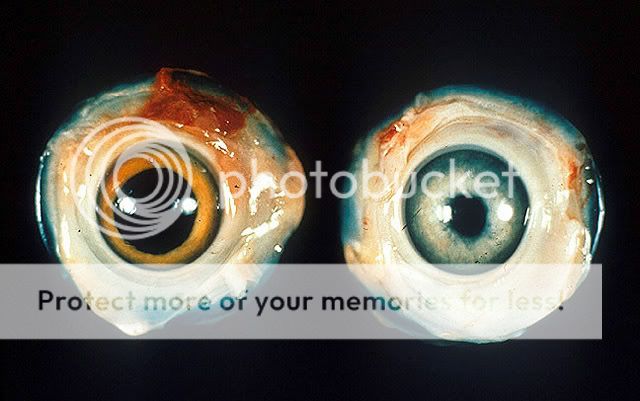- Aug 5, 2012
- 3,268
- 72
- 326
Several years ago, we got five hens of a commercial laying breed. After they hit about four years, none of the four we still had were very healthy, and three of them died--two from Egg yolk peritonitis, one from something that I now am thinking was also caused by an egg yolk peritonitis-like problem. (And I made the decision that multi-purpose birds were the thing for me--anything but Egg yolk peritonitis!) We have one hen remaining. For a while, she was very healthy. Then she suddenly decreased activity. It took a few days to realize she was blind. It appears that she still has some sight in one eye and can see light in the other, but for the most part cannot see. She still eats and drinks, she knows the layout of the coop, run, and the area around it. We have put her in solitary confinement as the other birds will peck her to no end. Today she laid an egg (!)
My question is, what caused this blindness? Was it her heritage? Her eyes are blue and cloudy, but there doesn't appear to be damage. Can chickens get cataracts?
My question is, what caused this blindness? Was it her heritage? Her eyes are blue and cloudy, but there doesn't appear to be damage. Can chickens get cataracts?







